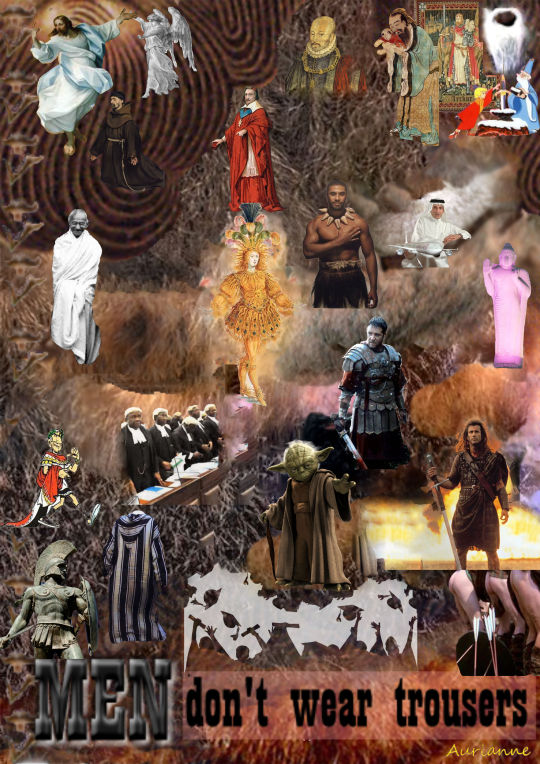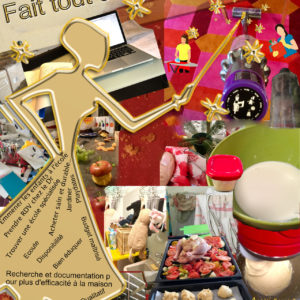“Aie le courage de devenir ce que tu es” ― Søren Kierkegaard
It was a beautiful fall in Geneva and they were training for the Escalade, the famous Winter Genevan run. What else than a jogging in the beautiful colors of Park Bertrand? And of course, as women always do, they were chatting at the sametime. The discussion had come to a point where they were discussing sexism in their kids’ class. Rosa would think that the teacher shouldn’t separate boys and girls when they were leaving the classroom. The teacher would claim that they had to have a sense of their gender identity. Moreover, it was easier for her when the girls left first; as the boys were more difficult to deal with. The three friends agreed that with twenty-five kids in the classroom the teacher needed some practical solutions. But was sexism a good solution?
There was this girl at school who only wanted to wear boy outfits and haircuts. And they all felt very sorry for her, as this kind of rule would make identity even more complex in her case. And she was such a charming young girl/boy? Was the teaching of gender identity appropriate for her?
The women didn’t know what to think and there was an uncomfortable pause in the conversation.
Delphine thought about this very little kindergarten in Sweden. It had been so attacked by the media around the world because the educators had based their teaching on avoiding discriminations of all kinds. And Delphine thought it would be a good occasion to talk about it. As the absence of most discrimination in this kindergarten was perceived positively throughout the world, the gender lack of discrimination was perceived as infamous. The kindergarten had been insulted and threatened. The most striking example was that conservative people couldn’t stand young boys wearing dresses; boys who were not forced to wear dresses but boys who had chosen this outfit.
The two other friends looked at Delphine and said, no, this can’t be. Boys can’t wear dresses! Or play dolls! Boys will be boys.
Suddenly, the Sun King came into Delphine’s mind. Louis XIV, the leader in the centralization of power, had been establishing his power and had been admired for dancing ballet with make-up on. He had many mistresses and all the court was spying every single move he made. He centralized power in France. That’s what you can call a real virile man!
How would they react if she told them? Would they find it funny or think it as a provocation? She thought it was safer to remain quiet and let them in their ignorance. But later that night, she regretted and thought she should have told them. Ignorance will never favor equality between genders.
Their reaction to the kindergarten’s anecdote was very surprising for Delphine. Did they want to fight sexism, yes or no? At what age should it begin? It couldn’t be yes for this and no for that. She didn’t get it. How did their brain work? She wished she knew. She was very curious and wanted to know how other people worked.
“One person’s freedom ends where another’s begins”, she kept that in mind to think about it a little bit longer.
How did wearing a dress or playing dolls affect other people’s lives? And as far as she knew, the first feminists who wore men’s clothes were considered really ridiculous and ignominious at their time. And her two friends were wearing trousers to jog, didn’t they?! What was the logic in that?
Obviously, the other two women understood how society worked much better than Delphine did. They kept silent meaningfully but what they meant, Delphine did not know. And they wouldn’t explain. They probably thought it would end in a verbal fight or that Delphine should know and say what was proper instead of these silly theories. They might have expected Delphine to repeat what had been said on T.V.; after all, this was modern common sense.
This event let our friend think about it more. Delphine had been to Stockholm ten years earlier and had seen men, ordinary men wear make up, not queers (as people usually thought when she was telling this story). It didn’t look shocking at all; just very surprising, as Delphine wasn’t used to it.
And that’s when she thought; equality between the sexes will only be found when men will fight for their rights too. Why do they accept to wear long trousers and long sleeves and leather lace-up shoes to go to work when it is 35°C outside? A dress would be more comfortable! Arabian princes with golden iPod’s and showy watches do wear robes proudly; so what’s the big deal?
Women want equal treatment but at the same time they accept rules which are different for men and women. That can’t be logical.
In her neighborhood, she knew some housemen who pretended to have a job. Very few assumed that they were “stay-at-home dads”. She liked “stay-at-home dads” because it meant couples did have an option of choosing who is going to work and men could be recognized as those who took care of the household.
But she did not like the expression. When a woman stays at home, she is a “housewife” and when men do the very same job they are “stay-at-home dads”, not “househusbands”. How come? Men just had to take care of the kids and live like recluses at home; while women doing the same job should take care of the whole house and household?
Some of these men did not feel comfortable at all, and she could understand why with such a weak definition of their role. Others were assuming it very well, including some homosexual stay-at-home dads and Delphine admired them. However she could understand that going to pick up your kids at school surrounded by all these women could be intimidating. But this experience is as intimidating for a woman who does not speak the language or for a twenty year-old Mum being the younger one within a group of over thirty-five year-old. Or for an Asian woman within a group of White people.
So Delphine decided she would try to go and meet those who felt excluded and stop categorizing them in gender, race or shy people. But not everybody shared her views.
Victoria interrupted her thoughts and said: “Oh, I’ve seen you’ve got a male baby-sitter.”
“Yes”, Delphine retorted.
“I wouldn’t; it’s so weird.”
“It isn’t weird to me. As a child, I had three male nannies and they were the best. And anyway, when he applied, there was no photography and no mention of his gender; so, really, I chose him without knowing his gender and my reason was he seemed to look for the company of children and that’s what matters, isn’t it?”
“Of course. But how is it going?”
“Very well. You know, I always had female baby-sitters before, some were excellent; others were absolute disasters. What matters is how good the relationship to the kids is; and also how responsible the person is. He’s OK. I wasn’t going to tell him to fuck off just because he’s a man!”
“Yes,” she admitted bluntly. There was an awkward silence.
“In fact, I think that people who want a job, which is generally attributed to the other gender, are more likely to be motivated because it is not easy to go against prejudice,” Delphine stated. She then thought about her giving birth.
“Contrary to the female midwife who helped me giving birth to my daughter and who only looked at figures, the male midwife who helped me giving birth to my son was competent enough to really look at the way my muscle tissues reacted and realized I didn’t need surgery. And I thanked him very warmly for that!”
That put an end to the conversation. This was too much. Victoria took it personally; this woman was going too far. Who did she think she was to moralize everybody? Why couldn’t she stick to the consensus from the media and let them have a nice peaceful chat.
The two women parted and remained polite until the end of the school year but never debated again nor invited to jog.
On the following Saturday, Delphine had gone to a walk in the beautiful arboretum in Aubonne. The weather was fabulous and all the colors of the fall seemed so harmonious she wished she were an aquarelle painter. She was accompanying her daughter to the second event of her Girl Scout year, the first one having been a Halloween party the week before. Everything was very well organized and the group was very nice, smiling and welcoming. Delphine really liked that atmosphere. It was really refreshing.
Dephine began to chat with another mother who introduced herself as Ana. Very quickly Ana asked Delphine what she was doing. She replied she was a housewife.
Ana did not mean to be rude; she was just exhausted and talked without thinking.
“Oh! So you’re not working! ,” Ana commented. As usual, Delphine
didn’t take it personally. That was the conventional response to a housewife: tell her she doesn’t work. How many times had she heard that this year?
“What were you doing before? ” Ana inquired just to be polite and make a conversation. But what was this standard question again?
When her husband said he worked at the Red Cross as an I.T. project manager, nobody asked what he was doing before! Asking what you were doing before is as rude as telling somebody, get up couch potato and go back to work…
“I used to be a social worker”, she retorted respectfully but resentfully. How many times did she have this conversation? The people who ask this kind of conversation are the first one to claim they couldn’t stay at home! So, why go for hard work while you could easily stay at home not working. Delphine imagined them saying “Oh! I love working hard, staying at home is too easy! That’s the reason why I don’t want to stay at home”. “Please do stay at home, Delphine said to herself, and then we’ll talk about hard work!”
“Ah! And don’t you want to work again?” Ana added, very absent-mindedly.
“Well, I am a housewife and I am very occupied so I surely have an occupation. I am most efficient in performing my job”. And she thought, in any jobs, some are better performers than others. She also remembered that when she had moved in with her husband, fifteen years earlier, he had been really surprised to see that there was more money left on the bank account when they were living together than when he was only taking care of himself. Saving money is also a form of earning, isn’t it?
“And, don’t you want to go back working as a social worker?” This was
too much for Delphine! The words came out of her mouth even without her
thinking about it:
“In fact, my husband doesn’t want me to be employed again. He says the women who have a career and take care of domestic chores have porcelain vampire skin with big dark rings under eyes and that they are loosing hair. He’d rather have a healthy wife because he cares for me.”
In fact, the woman was Black, so one couldn’t really state she had porcelain vampire skin, but she did look greyish, with dark rings under her eyes and she did not have as much hair as one should have expected.
“I am working full time for the Global fund and I take good care of my family,” she roared.
Weird silence…Oups! Delphine did not miss one! Telling her mind was Delphine’s curse. How will they make friends now?
Surprisingly, Ana was very open-minded and they kept on talking. She
admitted they were too many women supposedly working part-time who were just doing a full-time job with half of the money and had to take care of the house to top it all; some ending with a nervous breakdown which comforted conservative people that women were not as efficient as men in the workplace. And, of course, they considered they were hysterical. And that was neither fair nor healthy. And also, she acknowledged that with the very high rate of divorces nowadays, we couldn’t deny that there was a family crisis going on. And some people were easy to complain that more and more young people were not educated to the standards we should expect in a modernized civilization. These weaknesses unfortunately had to be taken into account.
But she was still very happy to overwork because it was for a just cause, and she wanted her life to mean something, and help others.
So Delphine told her how she became a housewife. When her husband and herself were both working, they could not make both ends meet and the house was in a mess. So they had decided only one of them will focus on the career and the other will focus on the house. They did not have any preconceived ideas. But they very quickly realized that nowadays, a man will find enough money for the whole family and high standards (like working for a just cause), more easily than a woman. Delphine used to be the more educated of the two. So, she taught him everything she knew, he passed exams after work while she was taking care of everything at home and they finally made it: a great interesting job, defending good values, in an international environment and with some time to care for the family. They had both made it; and Delphine’s husband was never forgetting that they had achieved this together. So yes, they were having a conservative lifestyle. But they were not conservative, just practical.
They both respected each other and made decisions together. It was a choice; it was not imposed on them. That made a huge difference! They were equals and they had chosen their fate considering the reality of the situation. It will take a long time for society to change and to become more equal. Taking the best option for you is not such a bad thing; don’t be a fool, you only have one life; why loose your health?
But keep your idealism. You can still speak, write, promote equal rights, debate and
last but not least vote. The couple’s ideal was that they should both have real part-time jobs and share chores at home. That was their ideal, but not their life. But she admitted that Ana set an example as an efficient working woman and that this would help to stop gender discriminations much more than what they were doing.
Delphine felt that she could speak openly with somebody at last. They could exchange ideas, disagree on some points and think about what the other had said. This precious quality of dialogue is rare, but it is something Delphine loved about people living in Geneva: although it was not everywhere, you could find this kind of exchange and be yourself. They both respected the choice of the other and valued it as a good option.
Ana went on talking about Black women at work. When a colored person or a woman accepts a job with responsibilities or technicality, they are expected to do better and to work more than ― a white man. And then they would say, see, they do not do the job properly! But of course they weren’t as they had so much more to do.
Ana also added that they had remarked all this in Switzerland, which is one of the most advanced countries on the matter of integration and peaceful coexistence. These topics seemed to be nothing for many countries where people were still fighting just to have some women or colored people access these jobs.
And that’s why she was so proud of working with such a good position. She hoped she could be a model to inspire women to defend their rights on the working place. If you go back home, even if your reasons are good, you don’t show the world Black women are efficient at work, you do not show the world women and Black people are able, that their work is as valuable as a White man’s; you’re not a living proof.
With a feminist grandmother and a feminist mother, Delphine felt she did not want to be a feminist. Housewife or workingwoman; that was not the issue. Gender wasn’t either. Telling men they were machos and women they had to be feminists only led to conflict. And that was not the point, was it?
And anyway, if women had access to equal treatment, this will also benefit men. A less tired wife when they go back home, sharing their work with them so they can have a more fruitful family life; the possibility of taking care of the house and children if that’s what they want to do. Equality would benefit everyone. And people at work would be more motivated as the most qualified people would be there, ― not only the male White ones. What a shame not to use women’s and colored and overweight and handicapped and young people’s brains!
Mansha arrived and told them the Girl Scouts group had to stop to drink water and also because there was a perfect spot for a group photograph. So each one went back to the girls and made sure everything looked good and that the picture would be great. Mansha had overheard Delphine and Ana’s conversation and she wanted to take part in the debate.
“I come from India and there, progress is going on, very slowly but still it is going on. In the Bollywood film Dil Dhadakne Do, which is a progressionist movie, a brother and sister deal with the impact of family considerations on their lives. The brother is meant to succeed his father as the director of the firm he created and the sister had to marry for her father’s business purposes and she is supposed to get pregnant and raise children while she has shown absolutely no interest in household chores nor in children et even less in her husband. They both rebel. The daughter has also started a company of her own while the brother has absolutely no talent to run a business. So the brother decides that his sister should run the company. In this film, you clearly see that having access to work, being able to run a company is still a taboo that is discussed. And it is like that in most countries”.
Ana had seen the movie because she had a friend who worked as camera operator on the set. She backed Mansha. But even in this film, the woman is not considered an equal, as her brother does not ask her what she wants to do. The sister may just want to go on with her own business, not run that of her father’s. And Hollywood is not better. Have you seen recently in the newspapers that only 18% of films have women as two of the top three speaking parts?
Mansha replied, “You are so picky on details, you forget the overall picture. You are the better-treated women in the world, and instead of seizing how fast women’s right have evolved and thank God for it, you look at what is still missing.These are the ideals of spoilt people who leave in peaceful countries.
One of my friends went on a trip to Oman. She told me that there women were wearing burqas and were not even allowed to get out of their car while refilling their fuel tank with gasoline. You don’t know how lucky you are, guys… Well, she’s not very trustworthy you see, so… do you think this is true?”
The hike was over now and it was time for a snack with the girls. Delphine began chatting with another mother called Gaïa. She was feeding her twin daughters with some homemade double-chocolate chip cookies. Then she started to ask all the girls if they wanted any, often insisting that they should take one, as they were so yummy and freshly cooked. No girl could resist that! So Mansha thought it might be a good idea to follow her with apples, as to balance everybody’s diet and Delphine followed to give the girls the GS hiking badge they had earned that day. Ana had brought some tea and started offering a cup to all the mothers.
“Oh! These plastic cups look really nice with these birds singing in trees designs. And they look light but solid.” remarked Gaïa.
“Thank you, said Ana, I’m glad you like them. I’ve bought them at Manor.”
“Good to know, I’ll go there”, lied Gaïa as she didn’t mean to buy any of these pretty cups.
“Do you want milk in your tea?” offered Ana.
“No, thank you”, she replied and watched Ana serving all the other Mums.
Delphine and Mansha were back from their apple and badge tours and the three mothers began chatting again.
“I’m British, claimed Gaïa, and tea is like a ceremony in my country. For instance, do you know that milk should be put in the cup before the tea?”
“Oh! I’m sorry”, Ana looked down confusedly.
“Oh! No! No! I didn’t mean to make you feel uncomfortable… I just wanted to tell you something I find very funny. Do you know why we have this tradition?”
“To piss everybody off”, suggested Delphine.
“That’s quite it!, laughed Gaïa, tea makes you piss. You see, in England, people buy porcelain cups, and they are extremely beautiful and expensive but also very delicate. If you put boiling water in them, they crack. That is why you need to put the milk first, so as to lower the temperature of the tea and preserve the cup from breaking into pieces. You see.”
“Oh! That’s interesting. So, English people are all mimicking rich people and put milk first in their plastic cups for absolutely no reason at all, argued Mansha. That’s the power of tradition.”
“In that condition, those who buy ordinary cups, which can stand high temperature finally make a better choice without knowing it, added Gaïa. Making the best choice doesn’t always mean behaving like the people you have tea with.”
“Well, in that case, it’s better to be poor with ordinary cups then rich and have to deal with fragile delicate ones. They can break”, Ana hinted.
“Exactly, hissed Gaïa. I have a preference for clay and ceramic mugs, which come from the earth. They are natural, strong and deeply rooted from the ground.”
Gaïa said goodbye to everybody and took her twin girls to her car.
“What a weird conversation about cups”, commented Mansha.
“I think she meant to be funny, mumbled Delphine. I like her”.
“I think she meant to teach something philosophical about what we have said earlier, Ana laughed. She may have heard us. We were a bit passionate and loud… I might opt for stronger cups from now on, maybe I’m too delicate and fragile, right now”.
“Don’t say that. I admire you, warned Delphine. We need people like you to set an example. And by the way, how come no Dads came to this event?”
After trying to find out, none of the Moms managed to figure that out.
“They may be tired from their working week”, proposed Mansha.
“Ah! You think we are not working?, pleaded Ana, are you joking? It’s just that our girls need us more than they need their fathers. That’s because we’ve got a pair of boobs and nothing is as comforting as that. I feel like I spend my time hugging the whole family!”
That was so true. They all agreed on that one.
“But of course, if their fathers would rather do something else than going with them, their daughters know it and that’s why they want to be with their Moms; not with them.” Delphine snarled.
“I don’t think so, the Dads may just feel uncomfortable being surrounded by so many people from the other sex. They might think we sometimes need to talk about female topics”, Mansha pondered.
“Oh yes, like how to comb our hair so we can be prettier for them!, Delphine added bitterly. I think we’d better ask them… But they are not here, and that is our whole point.”
When Delphine went back home with her husband, she asked him why he thought men did not come to this event. He answered that they were probably doing activities attributed to men like repairing the car or working on the house. Delphine thought that it was so strange that even those who are strongly in favor of equality maintain some role-playing according to their gender in their couple.
“Tradition is so sticky”, she concluded.
Her husband reminded her that on a historical basis, equality is still a very fresh concept. Human beings are traditional; they learn from the older ones and change is always very slow.
Delphine did not know what to think anymore. She felt a storm had devastated her brain.
She must be thinking too much. Stop thinking; that was her problem.
They drove back home, had a nice dinner, watched a movie and fell asleep. That night, Delphine made a dream based on a memory from late childhood. She saw a woman on stilts. Her arms were moving like a bird. She was facing the audience with a charming, benevolent and contagious smile. She fascinated everybody. Delphine was also on stilts, behind her with other students from the circus school; making her way as graciously as she could but she certainly didn’t look like a flying bird; it was more likely she looked like a baby bird who had just been kicked out of the nest. She could see the woman’s Mohawk hair with all its colors and she also noticed her armpits hadn’t been shaved. They looked like the bird’s feathers, giving amplitude to her pretend flight.
Delphine woke up and remembered this moment. It was her first aesthetic experience, maybe something like the epiphany British novelists described.
She remembered this woman full well. When she had first seen her, she was thirteen and she had been very surprised by her punk look. But her smile, her kindness, her patience and the way she was taking care of all those who wanted to learn stilts had changed her mind. She loved her. She was such a great teacher. It was very difficult for Delphine to stay on stilts but the woman never pressured her, she told her to take her time. And finally, she had managed to stand on them; not really mastering them but enough to move forward and that had been enough to be allowed on the show.
Once, she had met her on the street. She was so happy to see her. She ran to her and said hello and they had a little chat. Wen she came back to the friend she was hanging with, she had been surprised by her reaction: “How come you know such a person? She’s a punk and she looks like a man. She even has tattoos”. So she explained she was one of the sweetest women she knew and that she was her teacher at the circus school. But her friend retorted her she should be more careful about who her friends were.
Delphine made a note out of this last sentence. She should be more careful about who her friends were and not about how they looked like. She had written this, in her awkward style, on a personal diary:
“Equality is something to defend on a large scale and should have a large meaning.
Equality.
One person’s freedom ends where another’s begins.
Equal chances to make choices, including the choice of your looks or having the gender you want or even to have both at the same time.”
Later, as a woman, she had added:
“Let people be themselves, be treated equally, stop judging what you don’t understand, stop repeating already-made “polite” conversations, learn how to debate without aggression and learn from other people’s experience. Listen.
Learn how to debate before fighting for a cause.
Find solutions, not criticism.
Learn how to debate respectfully and peacefully and then dare open your mouth and say what you really think.
Read Maslow, Jacques Salomé and Steiner.”
But, from theory to practice, you have to perform a Kierkegaardian jump. Easier said than done!
Nevertheless, she always had the memory of that flying woman, who was free and who did not care; she did not even bother to justify herself.
She was herself.
Aurianne Or








